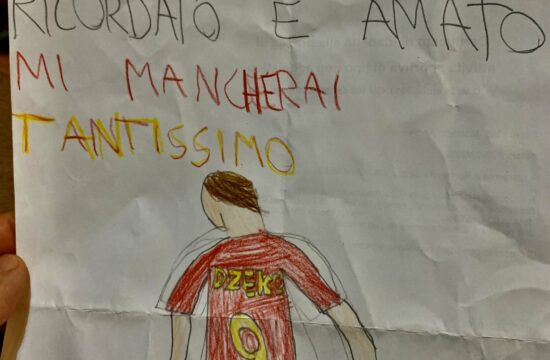
Authorities in Northern Ireland have appealed for calm after 29-year-old journalist Lyra McKee was shot dead on Thursday in what police are calling a "terrorist incident."
Dissident republicans are believed to be responsible for the death of McKee, who was shot during violent unrest in the Creggan area of Londonderry on Thursday night, according to police. Images from the scene showed cars alight as a crowd threw fireworks and petrol bombs at emergency vehicles.
The city – which is referred to by pro-Irish nationalists as Derry and pro-British unionists as Londonderry – is a short drive from the border with the Republic of Ireland.
“Sadly I can confirm that following shots being fired tonight in Creggan, a 29-year-old woman has been killed,” assistant chief constable Mark Hamilton said on Twitter. “We are treating this as a terrorist incident and we have launched a murder inquiry.”
At a press conference on Friday morning, Hamilton said the murder of McKee was “horrendous and unjustified.” He appealed on those intent on violence to draw back and said the acts of violence were doing nothing but causing misery.
McKee, according to publishing house Janklow & Nesbit UK, was born in Belfast and had written for a number of publications, including The Atlantic and Buzzfeed News. In 2016, she was named as one of Forbes Magazine's 30 under 30 in media in Europe.
She is the first journalist to be killed in the United Kingdom since 2001, according to the nonprofit organization the Committee to Protect Journalists.
Hamilton confirmed that police suspect the shooting was carried out by dissident Republican, namely the New Irish Republican Army (IRA).
McKee was wounded after a single gunman fired shots in a residential area, and died from her injuries, Hamilton said. McKee was standing close to a police vehicle. Police do not know if she was working as a journalist at the time, or was in the city for personal reasons.
‘Orchestrated violence’
Thursday's unrest in Derry comes in advance of Easter weekend, during which republicans mark the anniversary of the 1916 Easter Rising, considered among the most important dates in the struggle for Irish independence.
Hamilton said police had been in the area carrying out searches on “violent dissident republicans” who they believed were storing firearms and explosives for a number of planned attacks. They were concerned the weapons could have been used over the Easter weekend in the city.
According to Hamilton, a crowd gathered just after 9 pm on Thursday and over 50 petrol bombs were thrown at officers during the “orchestrated violence.” Two vehicles were hijacked and set on fire, he said.
“Police didn't use any force last night. All the violence was directed towards us,” Hamilton said.
At around 11 pm, there were around 100 people in the area, including young people and members of the media. The gunman fired several shots, Hamilton said.
“The shock over what happened here in this city last night is hanging heavy over the entire community today,” said Hamilton. “As we move into the Easter weekend I would appeal for calm and ask everyone with influence in the community to work together to ensure there are no further acts of violence.”
Growing unrest
A recent spate of violence in Northern Ireland has raised fears that sectarian violence might be revived, amid ongoing concerns over the effects of Brexit.
In January, a car bomb was detonated in central Derry in a suspected attack by the New IRA.
Many fear that Britain's departure from the European Union will mean the reintroduction of border posts on the frontier between Northern Ireland, part of the UK, and the Republic of Ireland, a European Union member.
Border infrastructure was often targeted by Irish nationalist paramilitaries during the “Troubles” – the 40-year sectarian conflict in which more than 3,500 people died.
Northern Ireland has two main political parties, the Democratic Unionist Party and Sinn Fein. The Sinn Fein deputy leader, Michelle O'Neill, condemned those responsible for the death of McKee, describing it as “a senseless loss of life.”
“I am shocked and saddened at the tragic news that a young woman has been shot dead by so-called dissidents in the Creggan estate tonight,” said O'Neill.
“The murder of this young woman is a human tragedy for her family, but it is also an attack on all the people of this community, an attack on our peace process and an attack on the Good Friday Agreement.”
The Good Friday, or Belfast, Agreement of 1998 was a turning point for the region ending years of bloodletting.
The Democratic Unionist party leader, Arlene Foster, tweeted: “Heartbreaking news. A senseless act. A family has been torn apart. Those who brought guns onto our streets in the 70s, 80s and 90s were wrong. It is equally wrong in 2019. No one wants to go back. My thoughts are also with the brave officers who stood in defence of their community.”




